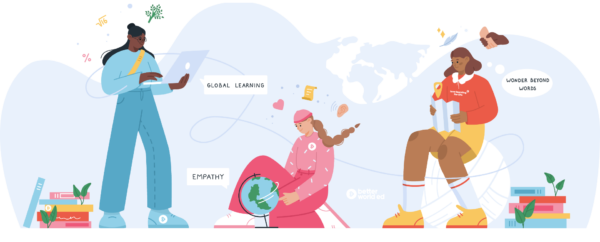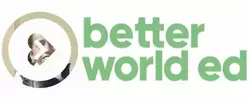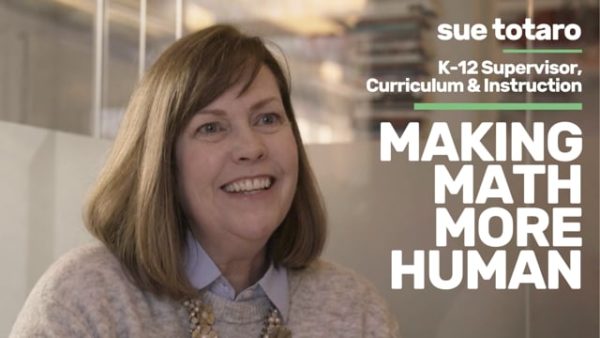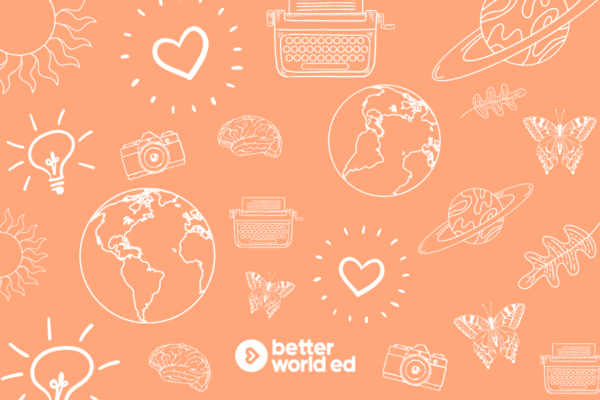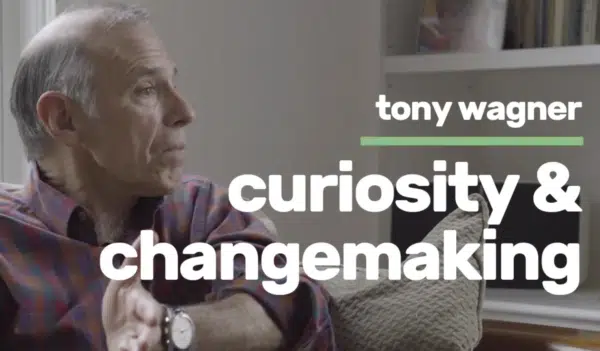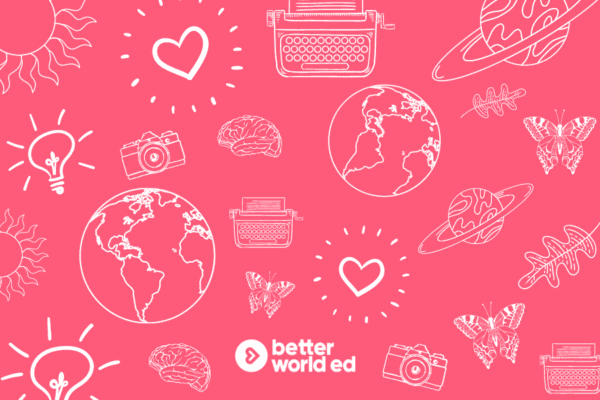Let’s Reweave Community And Reweave Humanity For A Better World
Better World Ed exists to help us reweave humanity. To love learning about self, others, and our world. To help us all learn to love self, others, and our world. To untangle the knots within and between us. To reweave the fabric of local and global community. To reweave a better world.
This post is about an aspect of this important mission to reweave: living with ubuntu as we reweave community. Click the “article” tab to dive in.
Categories
"How To" Ideas, Articles, BeWE Learning Journey, Topic Deep Dives
Tags
Approach, Community, Compassion, Empathy, Mission, Reweave, SEL, Social Emotional Learning, Vision
Lead Author(s)
Browse Related Articles and Resources
Let’s Reweave Community And Reweave Humanity For A Better World
If we want to reweave the fabric of our shared humanity and reweave community, it is time to move beyond the story in our world that more is always better.
Beyond the story that those who have more are better.
If the stories in our world teach kids that becoming a billionaire is a meaningful measure of success, then it’s important we reflect on what that may be teaching.
That a single person or family may need all of that money one day?
That collecting and growing financial resources beyond our personal needs is more important than sharing those resources amongst our fellow humans?
That everyone can be a billionaire if we all work hard?
That joy comes from amassing financial wealth, even well beyond our needs?
That unless we are accumulating more and more and more resources without sharing them equitably, we are not successful? That unless we have more, we are not good people?
That the more we collect, the more purposeful our lives will be?
That having and pursuing more will somehow not connect to the existential threat of climate change on our planet?
Okay, let’s not get too dramatic here. It’s not like everyone who becomes super rich stays that way. People who collect tons of money give so much of it away!
Sort of? And in so many ways, giving a small amount of that money away is really about power. The power to choose what changes in our society — and what doesn’t. The power to choose what to change. Whether to change.
Questions for the lifelong learner in all of us: “Why do such a small number of people get to decide what change matters for everyone else? Why do people who don’t face the challenges others face get to decide how to “fix” those challenges for those other people?”
We believe it’s essential that we move beyond the assumption that we know best how to “help” another human. If a person is asking for cash, who am I to buy that person a sandwich instead?
“Buying food is better because you don’t know what the other person will do with cash. At least now you know where your money is going.”
But what if the person I’m giving this sandwich to doesn’t want the sandwich? Isn’t hungry? Would rather eat pizza? Needs to pay rent? Has 12 sandwiches at home already? Is allergic to gluten? Doesn’t eat meat? Is saving for a child’s school fees?
Did we even ask before buying that sandwich?
Far too often, we’re taught that those who have more know more. Know better. Are better.
Maybe that’s how this story of “more” we are taught becomes so easy to grab onto. If we can accumulate more, we become more.
The slope is slippery.
On this journey to reweave, it becomes easy to slip into seeing humans as numbers or objects. As people who do and don’t need “saving” or “helping”.
It becomes easy to slip into seeing everything through the lens of how much “more” one is able to acquire in life. More money. More job. More status.
It becomes easy to let this story of “more = better” become the way we begin to think of the purpose of education. The way we think of Social Emotional Learning (SEL).
If we use SEL as a tool to help young people get more money, get “better jobs”, and “move up the ladder”, we may find decades later that not much real change happened at any kind of systemic level. And we’ll also find that climate change impacts are growing faster, as all of us pursuing more and more and more and more is having a devastating impact on our climate and in our mission to reweave a better world.
If SEL is thought of as a tool to increase earning potential or employability, we are missing the deeper purpose and meaning that comes from Social Emotional Learning.
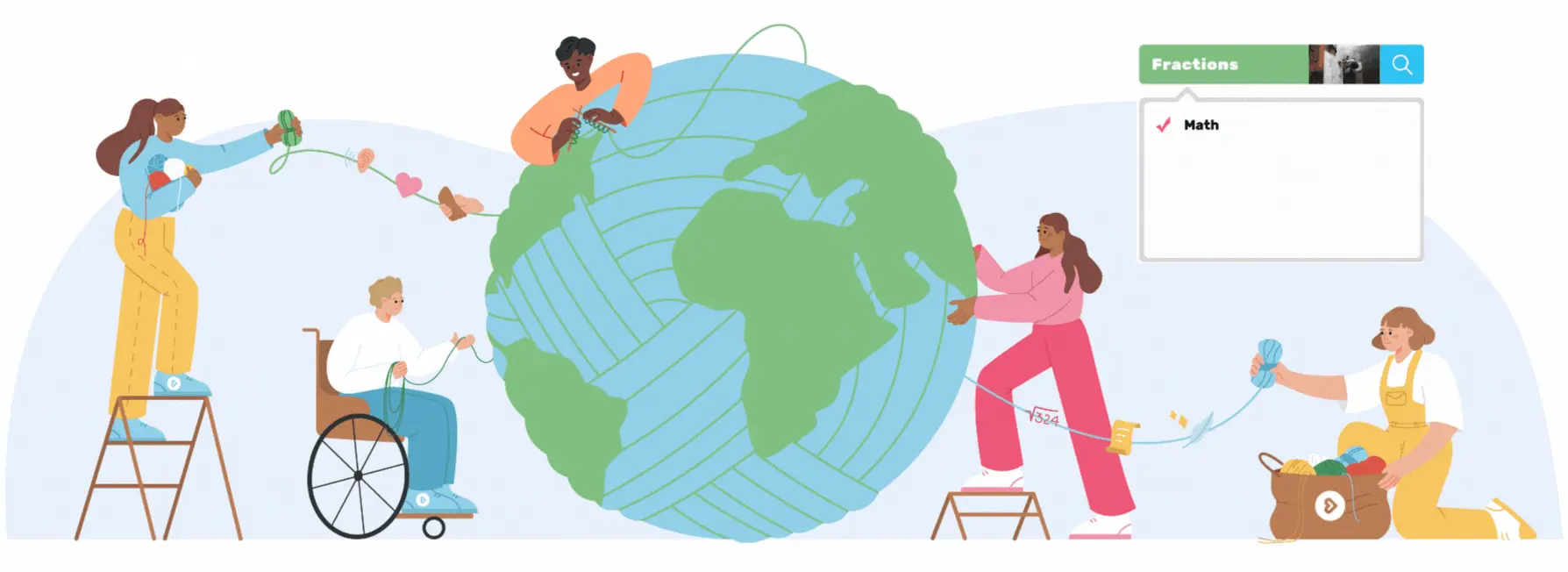
The real power of meaningful, inclusive, global SEL is in helping you(th) untangle and reweave what “employable” even means.
To reweave how we employ, what we employ people to do, what employers do with resources and profits, and why we employ who we employ. To reweave the purpose of our systems, moving from a focus on individual success while exploiting people and our environment to a focus on collective wellbeing and thriving.
If we truly want to create a better world together, SEL cannot primarily — even secondarily — be thought of as a tool for enabling success in the way our world currently sees success.
The purpose and potential of SEL is to help us understand one another to purely understand.
To listen to one another to deeply listen. Not to fix. Not to respond.
To empathize with one another to truly empathize.
To be curious about each other because we really are curious.
To teach how to wonder and seek understanding, not prescribe what to think.
To strive to be compassionate because we feel the joy and love that brings us all.
To recognize our bias and suspend our judgment because we see the way that positively impacts our minds, hearts, and collective wellbeing.
SEL is a lifelong practice that can make all of our lives better at the individual and collective level. No more, no less.
If we try to prescribe a purpose or a “goal” for the learning that happens, we may miss the point.
If we strive to be curious to sound like we care, we miss the point.
If we strive to listen to try and “fix” someone’s situation, we miss the point.
If we strive to empathize so we can sell a product, we miss the point.
If we strive to recognize bias or suspend our judgment so we don’t sound or act racist, we miss the point.
If we strive to reweave SEL with math or literacy to simply check off a box, we miss the point.
It’s more dangerous than simply missing the point — we close our eyes, rather than opening our minds and hearts.
Both the practices and the outcomes of meaningful Social Emotional Learning are rather simple: more aware, curious, compassionate, empathetic people deeply eager and committed to reweave a peaceful, equitable, just world together. To reweave community.
To untangle what is and reweave what can be.
To recognize inequities and privilege and to reimagine our lives and our systems to make things more equitable and just alongside one another.
A generation of humans growing up like this will be able to reimagine the way our societies function in ways we simply cannot comprehend yet.
So much transformation is possible if we raise a society of young people with open hearts and open minds.
We cannot fall into the trap of letting SEL be just another line item on a budget. Just another vertical in a school day. Just another period to add into a student’s schedule a couple times a week. Just another cute thing to try to fit in to our academic lessons.
SEL must be a valued practice early in life, every day, and everywhere. For this to happen, we must reweave SEL with academics in a deeply meaningful and humanizing way.
We cannot fall into the trap of quantifying SEL outcomes by measuring how much more students earn in our current system, or how much more employable one becomes.
These things do matter, especially in a system with so much inequity and injustice. Though these cannot be the main reasons we bring SEL into our lives, if we seek to truly reweave our world to be more peaceful, equitable, and just.
We cannot fall into the trap of trying to quantify the impacts of inclusive, global SEL with the measures given by a system so obsessed with quantifying everything and anything that suggests one “has more, relative to others”.
It is a risky path for us to go down, and it becomes extra risky if we as a society start relating these numbers to our perception of one’s happiness and fulfillment — counting how many people have X amount of Y — rather than remembering that we are all living, breathing, complex, interconnected beings who have perspectives and feelings. Who have unique ideas of purpose and meaning that we can be curious about rather than judge.
The reason Better World Ed exists, possibly above all the many other interwoven reasons, is to help us unravel all of this confusion and come back together as humans through curiosity before judgment. To reweave.
To see that we are all SO deeply interconnected, and all of this us and them stuff is really rather misleading to our youth. All of this “more” and “less” mindset is rather misleading to our youth, too.
This is not to say there isn’t injustice and inequity in our world. There absolutely is.
It’s to say that it’s shocking that this kind of injustice and inequity can even exist at all when we’re so deeply interconnected with the capacities for empathy, curiosity, understanding, and compassion.
As a species, it means we aren’t consistently practicing and prioritizing empathy, curiosity, and deep understanding early in life, every day, and everywhere.
This could very well be the root of all of the challenges we face in our world.
The point of realizing this deep interconnection — and our potential to live with ubuntu — is for us to remember the change we seek is not about saving one another or helping one another with our spare cash or a few hours. It’s not about making more money or achieving more power as individuals.
We can innovate to re-distribute all of our food and all of our funds, but how long will this last and what peace will it bring if we still hold on to bias, judgment, prejudice, or hate deep in our hearts and minds?
These are short-lived actions and outcomes that live at the surface, and what we badly need to work on together is the whole iceberg.
The deep purpose of Better World Ed curriculum is about recognizing, understanding, appreciating, and loving each of our whole icebergs.
Learning to see one another (and ourselves) as full, complex, unique, and beautiful humans. Not objects. Not numbers. Not statistics to save or change or help. To see one another as humans, with all of the complexity and magic that brings.
The purpose of this curriculum is to help us introspect and collectively understand our biases and judgments. To work alongside one another to address the inequities of the past and present. To untangle the knots within and between us. To reweave the beautiful fabric of our shared humanity.
A fabric we can reweave so strong that the change we make actually lasts for humans and all living things on this beautiful planet — because we see each other as full icebergs… I mean, humans.
As we strive to reweave:
Let’s strive to be consistently aware of our bias, our systems we live within, and our current wiring (our own, especially) when engaging with stories about the lives of other complex, incredible humans and in stories about our world and cultures.
That kind of awareness is a constant, daily, hourly thing that we’ve got to practice, and it’s something I’m striving to practice every day. It’s hard, it’s beautiful, and there are no shortcuts. This curriculum is about engaging in that hard and beautiful work together.
Better World Ed doesn’t exist to help learners “help people” or “fix problems” or “make more money” or “empathize for business outcomes” — this curriculum is here to help us all understand ourselves, each other, and our world in a deeper way. To reweave.
To see that those three concepts are so deeply interconnected (ourselves, each other, and our world). To see that we can learn to love ourselves, each other, and our world with all of our hearts and minds.
To see that this quest for understanding and empathy and purpose and meaning is a lifelong journey — and that we can come together to make that journey more meaningful and beautiful every step of the way.
To see that we can Be WE.
Let’s reweave community. Let’s live with ubuntu.
Let’s Reweave Community And Reweave Humanity For A Better World
Resources to reweave community and reweave humanity:
- A Lesson Plan on Bridging The Empathy Gap to reweave community and to encourage curiosity before judgment as we reweave our social fabric


- Teaching Unit (Resources for teaching with empathy, curiosity, and compassion on this journey to reweave a better world)
- Humanity & Belonging Unit (Resources about various topics and themes related to reweave community and living with ubuntu)
